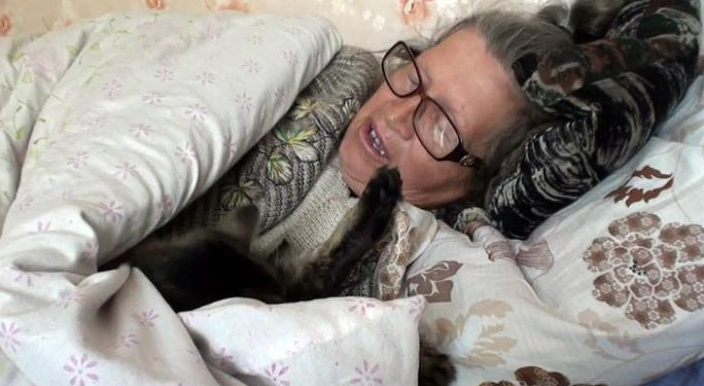
A leading Russian professor investigating the causes of the mysterious sleeping disorder affecting hundreds of residents in Kalachi, a village in northern Kazakhstan, believes that the 'disease' could spread, and admits that scientists are still unsure as to what is causing it. His warning comes as the ninth wave of the unidentified illness hit the area this week.
Those affected by the illness very suddenly fall asleep at any time of day or night, and often it is not possible to wake them for a few days. Some remember nothing when they awake and complain of drowsiness, while others say they experienced terrifying hallucinations. Over 150 cases of the disease have been reported since the first complaints by residents were made in March 2013, yet there is still no consensus on what is causing the nightmarish disease.
"The disease is characterised by the fact that the sick immerse [themselves] in unusually long sleep, while to bring them into full consciousness is practically impossible on the first day," says professor Leonid Rikhvanov from the Department of Geo-ecology and Geo-chemistry at the Tomsk Polytechnic University in Russia, who has spent four years studying the area. Worryingly, he says that the long-term effects of the disease are unknown and so far unstudied.
"During hospitalisation, people exposed to the disease were marked by identical complaints: dizziness, weakness, loss of coordination, unconsciousness or semiconscious state for up to three days," Rikhvanov continues. "After passing the first symptoms, they get headaches, become confused, and suffer emotional instability and memory disorders, which can last up to several weeks. In some cases, hallucinations occur, particularly in children. Some repeatedly fall asleep."
Rikhvanov believes that the root of the terrifying illness could lie in an old Soviet uranium mine in the nearby area of Krasnogorsk. He suspects that radon gas is being emitted from the mine, which has been abandoned for over two decades. "In my opinion, a gas factor is at work here. Radon could be operating as a narcotic substance or an anesthetic. Currently, the underground space of the mine is flooded and gases are being squeezed to the surface." Rikhvanov stresses that this is a working model, which has not yet been proven. But if his theory, based on the uranium mine, is correct, he believes the disease could spread throughout the district.
Other theories put forward include carbon monoxide poisoning and even mass hysteria. "It's common whenever you have [something] difficult to understand, [something] that you can't make a diagnosis for, to [think] maybe it's all in the mind," Dr Kevin Fong, co-director of the Centre for Altitude, Space and Extreme environment medicine, told the BBC.
Rikhvanov does not presently believe the disease to be a completely new one, as the symptoms are similar to chronic fatigue syndrome disease, caused by radiation, but says that if cases continued to grow, and there is still no scientific consensus, it could be classed as a new disease.
Last week, local authorities decided to start evacuating people from the village, as the situation shows no sign of abating. Professor Rikhvanov believes about 650 residents in total will be evacuated over the next few weeks. Locals have expressed their worry that they could fall asleep and never wake up again.
The head of the Yesilsk district demonstration Amanbek Kalzhanov told local media earlier this week: "The ninth wave of the disease has started. Two people, a man and a woman have contracted the disease. Treatment was given to them at the Krasnogorsk hospital. In all 120 people have fallen ill and given the recurrence of the disease the total number stands at 152."
Uncommon Knowledge
Newsweek is committed to challenging conventional wisdom and finding connections in the search for common ground.
Newsweek is committed to challenging conventional wisdom and finding connections in the search for common ground.
About the writer
Felicity is a reporter for Newsweek Europe based in London. Twitter: @FelicityCapon
To read how Newsweek uses AI as a newsroom tool, Click here.






